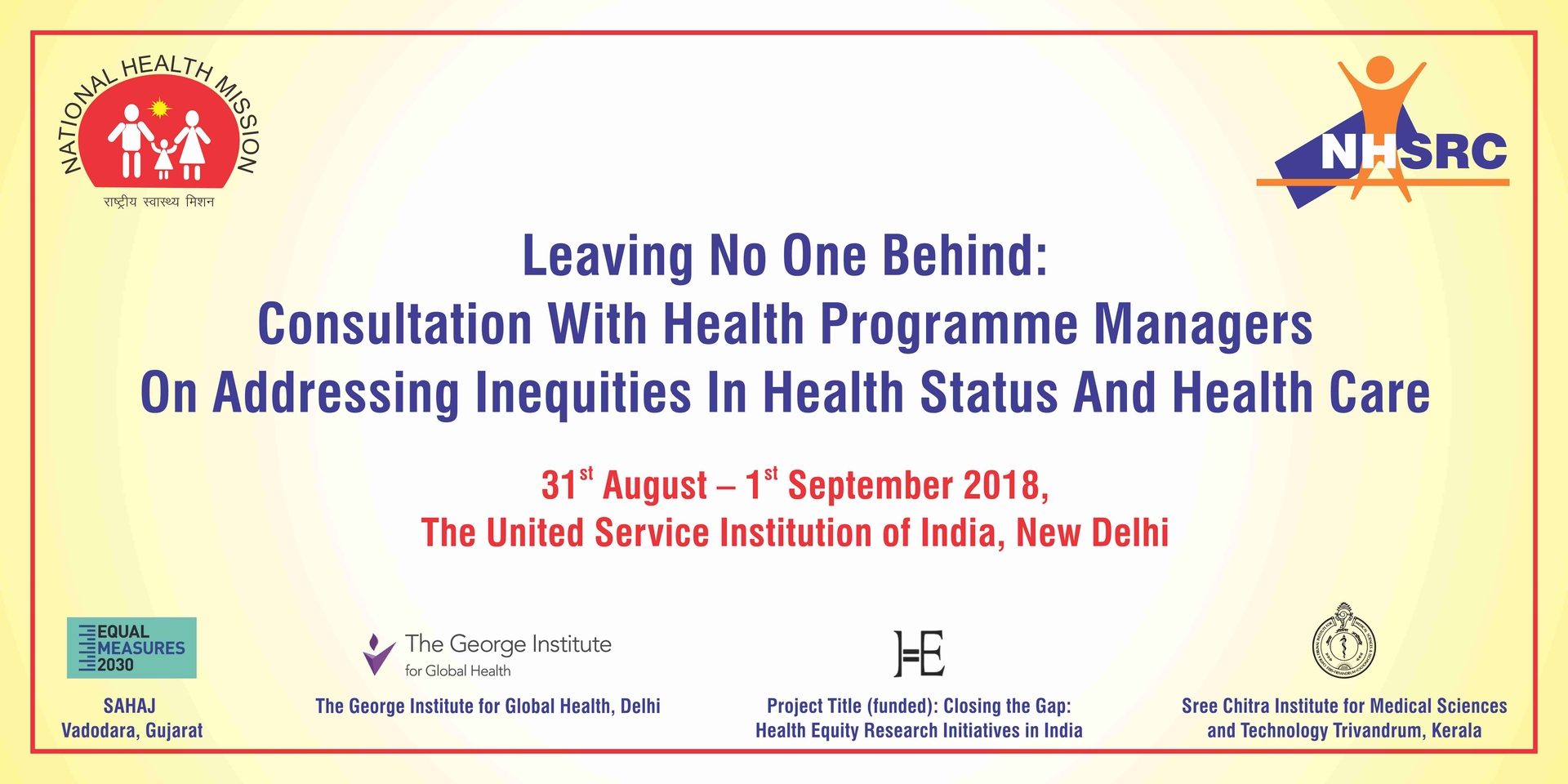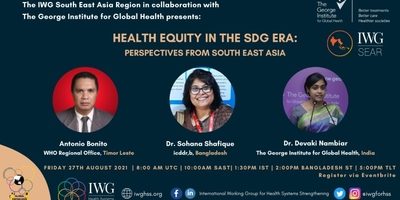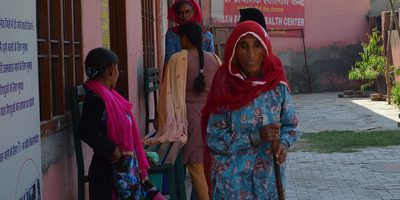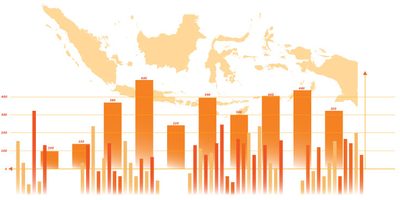
Sensitising health program managers to health equity
A consultation with health program managers working in the government departments of different states and at the centre on Addressing Inequity in Health Status and Health Care entitled “Leaving No One Behind” was organised by the National Health Systems Resource Centre (NHSRC) on August 31 and September 1, in association with Sere Chitra Institute for Medical Sciences and Technology, the George Institute for Global Health and Sahaj.
Kicking off the consultation, Dr Rajani Ved, Executive Director, National Health Systems Resource Centre, said equity was a guiding principle of the National Health Policy 2017 and therefore it was important for people in the government to incorporate equity measurement in the policy planning and implementation cycle.
Speaking on the occasion, T.K. Sundari Ravindran of the Achutha Menon Centre of Health Science Studies said equality in general and health equity in particular are also key themes in the Sustainable Development Goals agenda for 2030. Quoting Martin Luther King Jr, she said: “Of all the forms of inequality, injustice in health is the most shocking and the most inhuman because it often results in physical death.”
Pointing out that health inequalities in India are a serious cause for concern, she touch based on concepts to measure health inequality. She presented a synthesis of recent evidence on health equity as part of a research project entitled “Closing the gap: Health Equity Research Initiatives in India”.
Health systems are a crucial domain of inquiry when studying health inequalities as they have the potential to bring about reduction in inequities, she said. But at times they could also perpetuate the effects of larger structural injustice and social stratification.
Dr Devaki Nambiar, Program Head, Equity and Health Systems Research at the George Institute for Global Health India shared her experience of developing a State of Inequality report for Indonesia using the Health Equality Assessment Toolkit (HEAT).
Dr Nambiar said inequalities can be assessed using disaggregated data and summary measures that are visualized in a variety of customized tables and graphs. The process followed in Indonesia could be adapted across in Indian states based on local priorities and ongoing planning processes.
This was followed by a session on Using Data and Evidence for assessing inequities in health in the context of SDG’s by Reno Khanna of Sahaj.
The highlight of the workshop was a power walk which brought out the importance of integrating equity into planning as a large number of vulnerable groups are left out of the entitlements and benefits when it comes to health policy implementation.
On day two, the participants learned to evaluate an ongoing health program from an equity perspective and make recommendations for change. This will help them integrate an equity perspective in their work as program managers.






